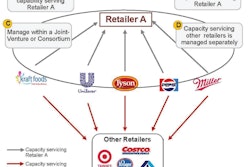New York, N.Y.—July 10, 2012—Global CEOs, CFOs and senior management accountants have an increasingly negative outlook for the global economy over the next 12 months, according to the CGMA Global Economic Forecast released today by the American Institute of CPAs (AICPA) and Chartered Institute of Management Accountants (CIMA). The quarterly forecast polled 600 management accountants from more than 60 countries on global and domestic economic conditions and the outlook for their organizations.
A comprehensive gauge of executive sentiment within the forecast, the CGMA Global Economic Index declined seven points to 58 from the first quarter 2012 reading of 65. The Index is a composite of 10 equally weighted survey measures on a scale from 0 to 100, with 50 considered neutral and numbers above that signifying positive sentiment.
While all factors in the Index weakened, the global economic optimism component registered the most significant decline. Only 11 percent of respondents expressed optimism. The decline appears to reflect the worsening of the sovereign and financial crisis in Europe and its effects on other regions; slower economic growth in China; and U.S. political and fiscal uncertainty.
“Although the CGMA Global Economic Index is still slightly above neutral, the pullback in optimism points to an unclear future in which companies must be prepared to address a variety of economic scenarios,” said Arleen Thomas, CPA, CGMA and Senior Vice President, Management Accounting, AICPA. “Businesses continue to show a need for the strategic perspectives of management accountants who can navigate the uncertain elements of our global economy.”
In the U.S., 36 percent of management accountants surveyed are optimistic about the domestic economy, down from 44 percent in the prior quarter. Asked about their own organizations, 51 percent of U.S. respondents are optimistic about prospects for their companies, a decrease of seven percentage points over last quarter.
“Our survey shows there is still a risk of a knee-jerk reaction by organizations, with economic pessimism leading to an investment freeze on areas that are the bedrocks of future success such as training, recruitment, R&D and capital investment,” said David Rowsby, Regional Director, Europe, CIMA. “Organizations should resist short-term pressure from the investment community and not be distracted from their longer term growth plans. They should turn to the management accountants in their business, who, like financial athletes, can help boards better understand what needs to be done to win in today's competitive market.”
Other key survey findings include:
- Weak Employment Outlook: Companies globally expect to increase headcount by only .6 percent, weaker growth than the 1.6 percent increase predicted just three months ago. With the exception of the retail and wholesale trade, the reduced projections for headcount growth were spread across all industry sectors. In the U.S., projections declined from 2.4 percent to 1.3 percent. While hiring growth remains weak, many 34 percent of management accountants in the U.S. said their businesses are operating with too few employees.
- Inflation Worries Subside: Worries about inflation subsided somewhat for most regions, reflecting the recent falls in commodity prices. A majority of Asian companies, 63 percent, continue to be most concerned about inflation, while in the U.S. fear of inflation dropped from 49 percent to 33 percent. Concerns about deflation continue to be low in the U.S., but the number of European companies concerned about deflation increased to 15 percent from 11 percent in the first quarter of 2012.
- Firms Expect More Difficult Financing: Financing continues to be most challenging for Asian companies with more than a third (37 percent) expecting greater difficulty, followed by those in emerging economies, 28 percent, and Europe, 28 percent. The U.S. was the exception, with only nine percent expecting more difficulty in obtaining financing.
- Industry Sector Outlook: From an industry sector perspective, 53 percent of finance and insurance respondents are now optimistic about their own companies, followed closely by those in retail and wholesale trade, 50 percent. All other sectors reported less than 50 percent optimism, including banking, 48 percent, manufacturing, 45 percent and technology, 41 percent.
The 10 factors included in the CGMA Global Economic Index are global economy optimism; domestic economy optimism; organization optimism; expansion plans; revenue; profits; employment; IT spending; other capital spending; training & development.

















